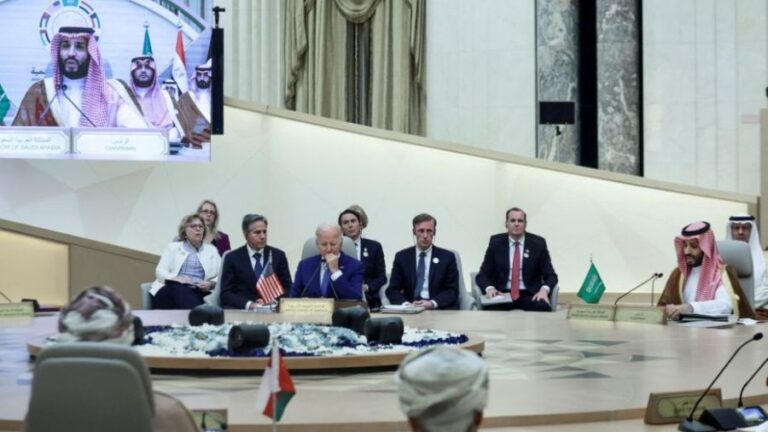Yemen’s Tragedy and US-Saudi Maneuvers
Yemeni President Abdrabbuh Mansour Hadi has resigned and handed over power to a new body, the President’s Leadership Council (PLC). He sacked his vice-president Ali Mohsen al-Ahmar in a sudden development believed to have been prompted by new US and Saudi tricks. According to media reports, the kingdom “rewarded” the move by promising $3bn in financial aid to support the Yemeni economy in partnership with the UAE. In February, informed sources told the Arab publication Al-Araby Al-Jadeed that the Saudi leadership was convinced that the establishment of such a council was necessary to “correct the inherent flaws in Yemen’s presidential system.” The move is seen by many as a concerted attempt by the US and Saudi Arabia, which has collapsed in years-long war against the Yemeni people, to unite Saudi-backed forces against the Yemeni Houthis.
A recent Wall Street Journal report, which has excellent informants in the Department of State and the Pentagon, discusses in some detail the “voluntary” relinquishment of power by Yemeni President Abdrabbuh Mansour Hadi and its transfer to the eight-member Council. Revealing the events that led to the decision, perceived as a major political “shake-up” in Yemeni politics, especially as it comes at a time of a two-month truce between the Saudi-led coalition and the Yemeni Houthis, WSJ suggests that Abdrabbuh Mansour Hadi’s decision was the result of strong US and Saudi Arabian pressure. Incidentally, Yemen’s “independent” president is still living in Saudi Arabia since the spring of 2015, when the Riyadh-led coalition launched a military intervention in Yemen, leading to a civil war that has brought untold misery to Yemenis.
WSJ sources say Abdrabbuh Mansour Hadi appeared in a rare video of him shaking hands with members of the new council while being under a “de facto house arrest” in Saudi Arabia, similar to that suffered by former Lebanese Prime Minister Saad Hariri in November 2017. According to the WSJ’s Saudi sources, Hadi is imprisoned in his home in Riyadh with all communications. Sources cited corrupt practices and his failure to stand firm against the Houthis as the main reasons for the decision to replace him.
The leadership of the PLC has gone to Rashad al-Alimi, one of former President Hadi’s most prominent political advisers since 2014. Prior to that, he was one of the well-known personalities under the previous regime, under which he held various senior positions in the security and intelligence sectors between 2000 and 2011, when he survived a missile attack on the presidential palace in Sanaa. Al-Alimi continued to operate behind the scenes in subsequent years as a leading figure in the government-affiliated General People’s Congress (GPC) and was also one of the initiators of the National Alliance of Yemeni Political Forces (NAYPF), which actively opposed the Houthis rebels.
In addition to cordial relations with a wide range of domestic political forces, al-Alimi has close ties with Saudi Arabia and the US, which has ensured his ascension. Just hours before his appointment, the US special envoy for Yemen, Tim Lenderking, met with him to give him instructions sent from Washington, according to the Arab media. By ensuring the inclusion of influential figures with close military ties in the new Council, the US-Saudi architects of change hope to avoid a repeat of the “fragility of the Hadi presidency.” They also hope to increase stability, if at all possible in the current Yemeni context, by giving the leader of the Council absolute powers, which Council members cannot override.
In addition to the general tasks assigned to the PLC, from the political and military administration of the state, defining foreign policy and facilitating the exercise of government powers, the decision gives the head of the Council exclusive powers, including overall command of the armed forces and “representation of the republic at home and abroad.” Similarly, only the head of the Council will have the exclusive power to appoint provincial governors, security chiefs, high court judges and a central bank governor after consultation with the prime minister, provided that the names are agreed by the PLC members. Similarly, he will be responsible for appointing ambassadors and ratifying laws.
The PLC consists of a chairman and seven deputies, including Sheikh Sultan al-Arada, whose retention as governor of Marib remains uncertain. In addition to Chairman Rashad al-Alimi, the Council includes two others from the GPC: Brigadier General Tarek Saleh, nephew of the late former Yemeni president, and Sheikh Osman Meghali, who was previously one of Hadi’s advisers. Council members from the south seem to have strong links with the UAE. These include al-Zubaidi, who heads the Southern Transitional Council (STC), al-Muharrami, who commands the Salafi and UAE-backed Giant Brigades, and al-Bahsani, governor of Hadramawt. Among the northern members, Saleh is also closely associated with the UAE. In terms of political parties, the Islah party secured two seats in the council through Bawazir, who was director of the Presidential Office (during Hadi’s tenure), and pro-Islamist governor of Marib, Sheikh Sultan al-Arada.
However, the integration of Yemen’s political parties does not appear to have been the main goal of those who organized the transfer of power. The aim is likely to be to form an apparent consensus between the major armed forces on the ground, especially the Giant Brigades, the STC, Saleh’s groups and the forces of al-Bahsani, who oversees the Yemeni armed forces in the second military region and may take over command of the first military district. Moreover, because of the instability that has become endemic to the Yemeni political scene, if there is no consensus around decisions, “they will be taken by simple majority vote.” Accordingly, “if there is no simple majority, the matter is referred to a joint meeting with the chairman of the Consultation and Reconciliation Commission,” the statement said. Decisions are then taken at a joint meeting of the PLC and the Presidium of the Consultation and Reconciliation Commission by a simple majority vote of those present, and in the event of a tie vote, the party voted for by the PLC president wins.
While most active forces on the ground in Yemen – apart from the Houthis – have become partners in the council, the reaction of the Houthis remains to be seen. This decision names them “Ansar Allah” (rather than “coup militias”) for the first time, which is taken as a signal that they want to start a dialogue with them. While leading Houthis figure Mohammed Ali al-Husi was quick to criticize the power transfer move, tweeting that “Hadi has no powers to be handed over to anyone else,” he soon deleted the statement from his official page.
Maged Al-Madhaji, executive director of the Center for Strategic Studies in Sanaa, believes it is not yet clear how this change will affect relations with the Houthis, but a complete restructuring of the bloc fighting the group will certainly “be a source of anxiety for the Houthis.” Al-Madhaji adds: “The creation of this council offers an opportunity to either start a real path to negotiations [with the Houthis] or to reorganize the fight against the Houthis militarily and politically.” The decision will undoubtedly give impetus to any path, but it will take time before “we will see results, because first we will see a transitional phase and witness resistance from some people with vested interests who have risen to powerful positions around President Hadi and surrounded him in the last period.” Moreover, the Yemeni researcher believes that with the departure of Hadi and the granting of absolute powers to the PLC chairman, Yemenis will see a different political approach. The opportunities and scenarios that this move could generate, as analysts point out, are numerous and varied. One such change could be that “the effective reintegration of the UAE and its allies into the Saudi fold could stimulate further progress and ease the serious tensions that exist on this front.” It is easy on paper, but how can it all be put into practice in a conflict-torn republic?
However, will the Yemenis, and especially the Houthis rebels, who also want their fair share of power in Yemen, agree to all this? All this can be known after the end of the holy month of Ramadan. But, in any case, the bitter fire of struggle, in which the US and Saudi Arabia are generously pouring gasoline, will continue. In theory, everyone knows that power is not handed over to some unknown council, but is conquered on the battlefield.







